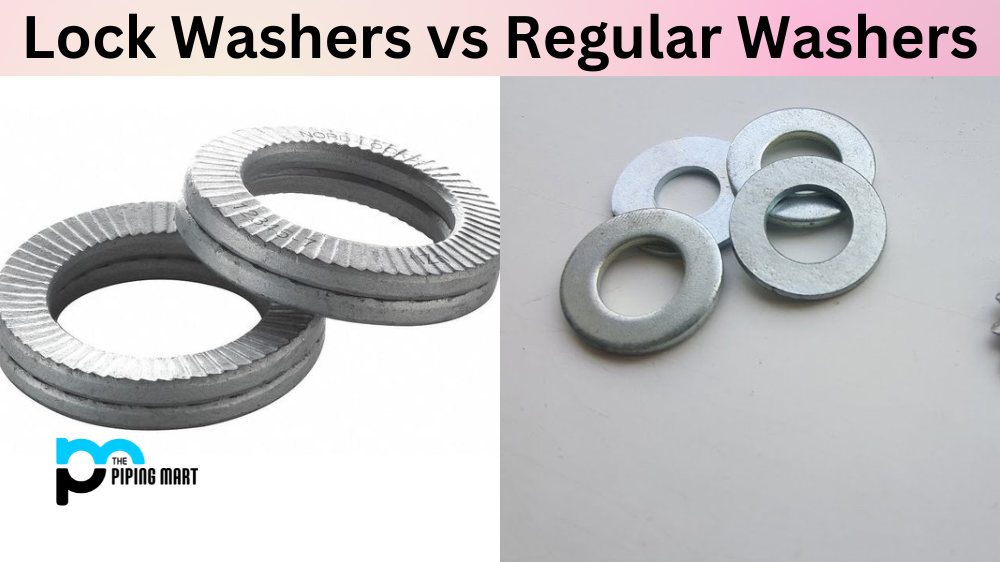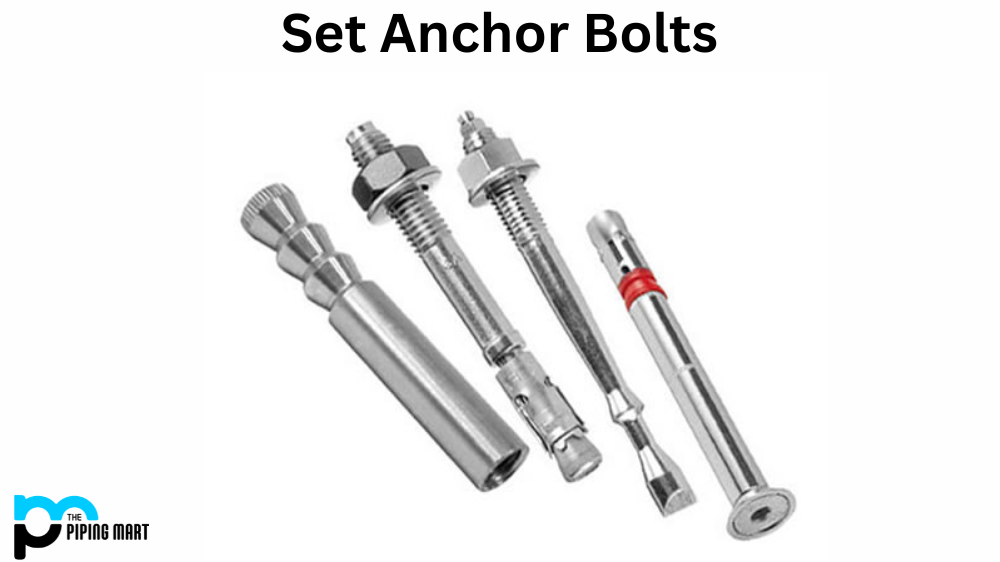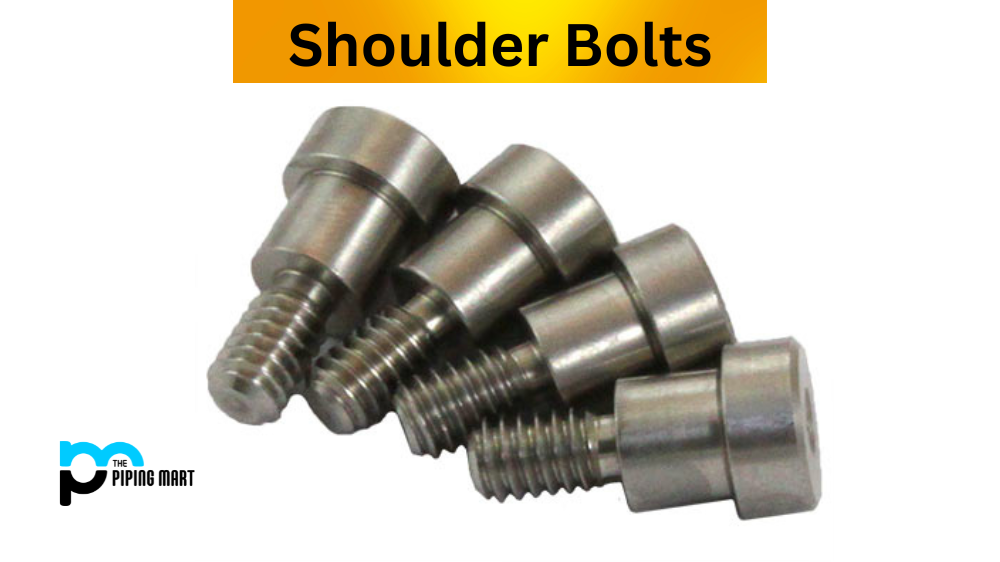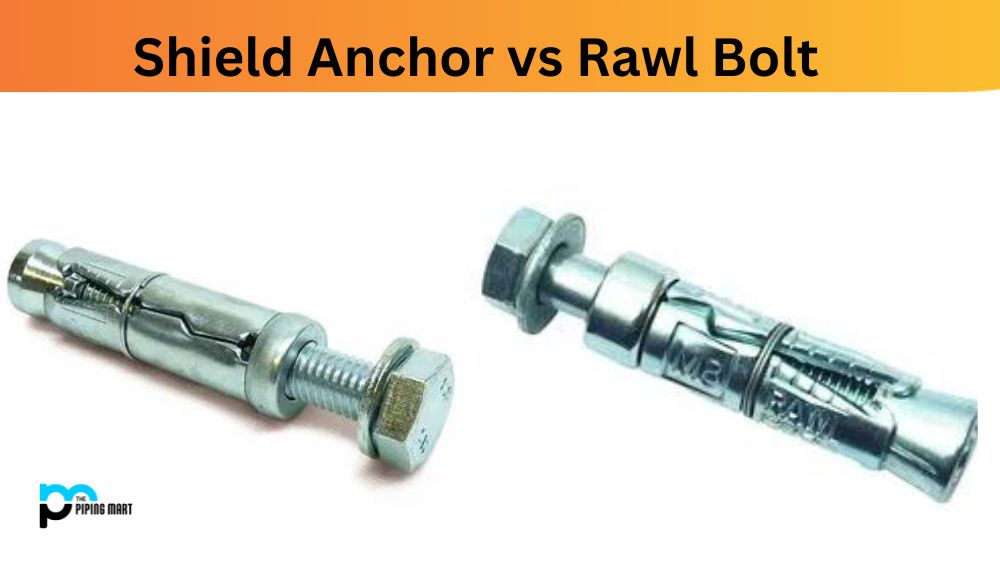When you’re in need of a washer, it’s important to understand the differences between lock washers and regular washers. Although both styles of washers serve a similar purpose—to help spread out the load on a bolt or screw head—there are several distinct advantages that come with using lock washers. Let’s take a closer look at what sets them apart from regular washers.
Lock Washer Design
Lock washers have an added feature that helps keep them in place once they are attached to the bolt or screw head. This feature is called an internal “lock tab”, which is designed to bend slightly when pressure is applied during installation, creating greater surface area contact with the fastener, resulting in a stronger grip. Lock tabs also provide improved vibration resistance, which can be useful in applications where there is a lot of movement or vibration involved, such as vehicle engines or industrial machinery.
Regular Washer Design
Regular washers do not have this additional feature of a lock tab, so they can be easily pushed off the bolt or screw head if there is too much movement or vibration present. The lack of this extra feature makes regular washers better suited for static applications where there will be no movement or vibration involved. Regular washers also typically have smoother surfaces than lock washers, making them easier to slide on and off bolts and screws without any extra effort required on your part.
Difference Between Lock Washer and Regular Washer
How does a lock washer work?
A lock washer works by creating friction between the fastener and the material it is attached to. This friction prevents the fastener from loosening due to vibration. Lock washers are available in a variety of materials, each with its own unique properties that contribute to its ability to create friction.
What are the advantages of using a lock washer?
Lock washers offer a number of advantages over regular washers. First, they are less likely to loosen due to vibration. Second, they create a tighter seal between the fastener and the material it is attached to, which can help to prevent leaks. Finally, lock washers are available in a variety of materials that can resist corrosion and provide other benefits.
What are the disadvantages of using a lock washer?
While lock washers offer several advantages over regular washers, there are also some disadvantages to consider. First, lock washers are more expensive than regular washers. Second, they can be difficult to remove once they have been installed. Finally, some types of lock washers may damage the material they are attached to if not installed correctly.
How do I install a lock washer?
Installing a lock washer is relatively simple and can be done with just a few tools. First, start by placing the lock washer over the fastener. Next, use a wrench or other tool to tighten the fastener until it is snug against the lock washer. Finally, check that the fastener is secure by trying to loosen it with your fingers or another tool.
Conclusion:
In conclusion, understanding the difference between lock washers and regular washers can save you time and energy when it comes to selecting the right type for your project. While both styles of washers serve similar purposes, lock washers offer more secure gripping power thanks to their internal “lock tabs”, which help keep them firmly in place even under heavy loads or vibrations. Regular washers do not have this feature but are better suited for static applications due to their smooth surfaces, which make slipping them on and off bolts and screws much easier than their locking counterparts. No matter what type of application you may be dealing with, knowing what kind of washer best suits your needs can help ensure that your project is completed correctly every time!

Abhishek is a seasoned blogger and industry expert, sharing his insights and knowledge on various topics. With his research, Abhishek offers valuable insights and tips for professionals and enthusiasts. Follow him for expert advice on the latest trends and developments in the metal industry.




